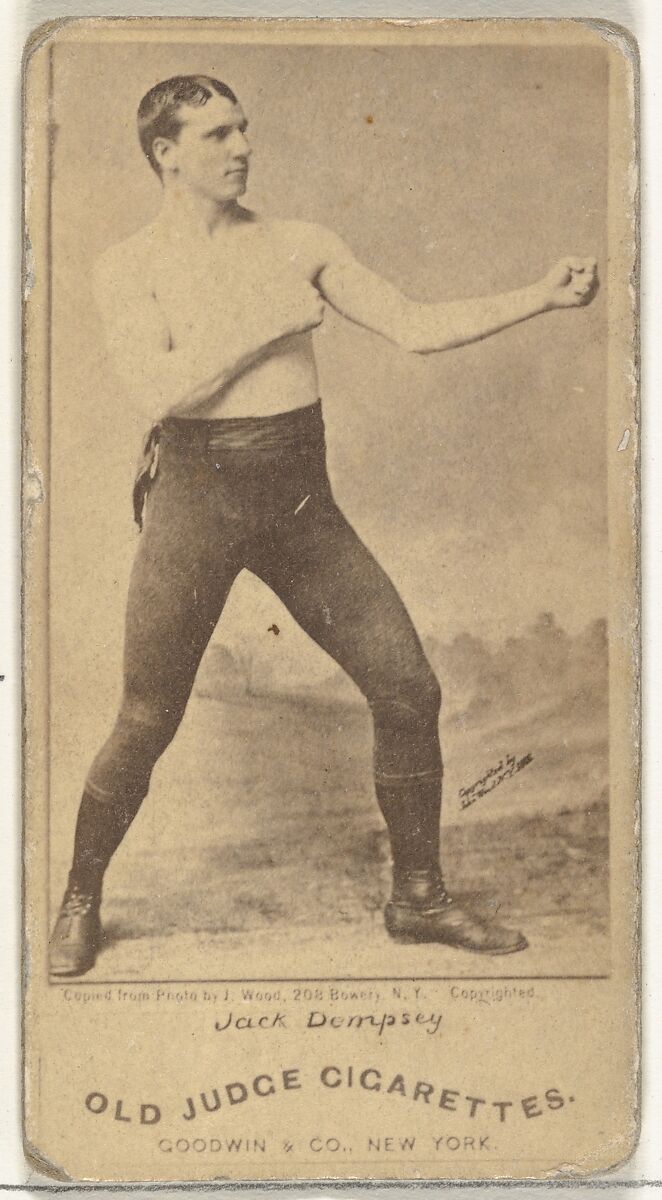Jack "NonPareil" Dempsey
Middleweight BoxerJack “NonPareil” Dempsey’s biography
Jack “Nonpareil” Dempsey (December 15, 1862 – November 1, 1895) was an American boxer who competed from 1882 to 1895. He was the first American-born world middleweight champion and is considered one of the greatest boxers of the 19th century.
Dempsey was born in County Kildare, Ireland, but his family immigrated to the United States when he was still an infant. He grew up in New York City and began his boxing career in 1882. At the time, boxing was still a relatively new sport, and there were few rules governing it. Fighters often fought bare-knuckled, and matches frequently lasted dozens of rounds.
Despite the lack of regulations, Dempsey quickly became known as a skilled and tough fighter. He won his first professional fight in 1883 and continued to rack up victories over the next few years. In 1886, he won the middleweight championship of the United States by defeating George LaBlanche.
Dempsey’s rise to fame was not without controversy, however. He was known for his aggressive style, and some critics accused him of using illegal tactics, such as hitting opponents below the belt. Nevertheless, Dempsey continued to dominate the middleweight division and earned the nickname “Nonpareil,” which means “unrivaled” or “without equal.”
Dempsey continued to fight over the next few years, defending his American middleweight title and challenging for the world middleweight title. In 1895, he fought Bob Fitzsimmons for the world title, but lost in the 13th round. Sadly, Dempsey’s career was cut short when he died of tuberculosis later that year at the age of 32.
Despite his relatively short career, Jack “Nonpareil” Dempsey left a lasting impact on the sport of boxing. He was one of the first boxers to rely on skill and technique rather than brute strength, and his legacy paved the way for future boxers such as Jack Johnson and Muhammad Ali. Dempsey was inducted into the International Boxing Hall of Fame in 1990.
1887 N174 Old Judge
There is only 7 graded PSA version of this card. None higher than 7.

The card pictured below is from the Jefferson R. Burdick collection at the Met Museum
